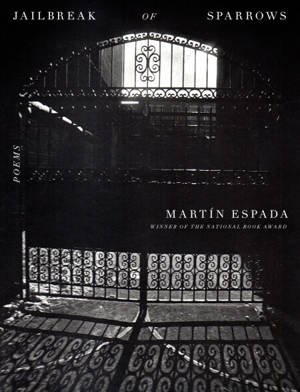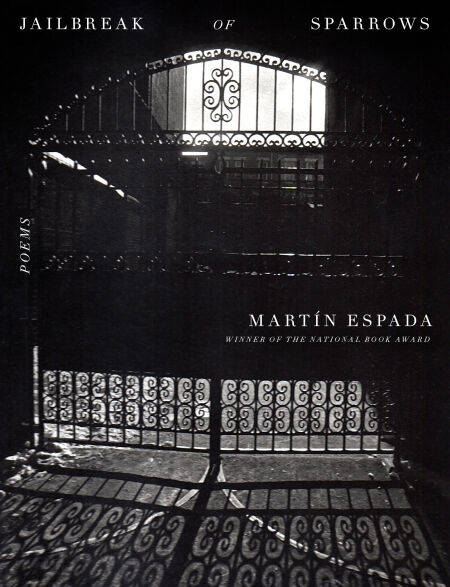
Je cadeautjes zeker op tijd in huis hebben voor de feestdagen? Kom langs in onze winkels en vind het perfecte geschenk!
- Afhalen na 1 uur in een winkel met voorraad
- Gratis thuislevering in België vanaf € 30
- Ruim aanbod met 7 miljoen producten
Je cadeautjes zeker op tijd in huis hebben voor de feestdagen? Kom langs in onze winkels en vind het perfecte geschenk!
- Afhalen na 1 uur in een winkel met voorraad
- Gratis thuislevering in België vanaf € 30
- Ruim aanbod met 7 miljoen producten
Zoeken
Omschrijving
In this brilliant new collection of poems, National Book Award winner Martín Espada offers narratives of the forgotten and the unforgettable.
The poems in Jailbreak of Sparrows reveal the ways in which the ordinary becomes monumental: family portraits, politically charged reports, and tributes to the unsung. Espada’s focus ranges from the bombardment of his family’s hometown in Puerto Rico amid an anti-colonial uprising to the murder of a Mexican man by police in California, from the poet’s adolescent brawl on a basketball court over martyred baseball hero Roberto Clemente to his unorthodox methods of representing undocumented migrants as a tenant lawyer. We also encounter “love songs” to the poet’s wife from a series of unexpected voices: a bat with vertigo, the polar bear mascot for a minor league ballclub, a disembodied head in a jar.
Jailbreak of Sparrows is a collection of arresting poems that roots itself in the image, the musicality of language, and the depth of human experience. “Look at this was all he said, and all he had to say,” the poet says about his father, a photographer who documented his Puerto Rican community in Brooklyn and beyond. The poems of Martín Espada tell us: Look.
The poems in Jailbreak of Sparrows reveal the ways in which the ordinary becomes monumental: family portraits, politically charged reports, and tributes to the unsung. Espada’s focus ranges from the bombardment of his family’s hometown in Puerto Rico amid an anti-colonial uprising to the murder of a Mexican man by police in California, from the poet’s adolescent brawl on a basketball court over martyred baseball hero Roberto Clemente to his unorthodox methods of representing undocumented migrants as a tenant lawyer. We also encounter “love songs” to the poet’s wife from a series of unexpected voices: a bat with vertigo, the polar bear mascot for a minor league ballclub, a disembodied head in a jar.
Jailbreak of Sparrows is a collection of arresting poems that roots itself in the image, the musicality of language, and the depth of human experience. “Look at this was all he said, and all he had to say,” the poet says about his father, a photographer who documented his Puerto Rican community in Brooklyn and beyond. The poems of Martín Espada tell us: Look.
Specificaties
Betrokkenen
- Auteur(s):
- Uitgeverij:
Inhoud
- Aantal bladzijden:
- 128
- Taal:
- Engels
Eigenschappen
- Productcode (EAN):
- 9780593537138
- Verschijningsdatum:
- 31/03/2025
- Uitvoering:
- E-book
- Beveiligd met:
- Adobe DRM
- Formaat:
- ePub

Alleen bij Standaard Boekhandel
+ 18 punten op je klantenkaart van Standaard Boekhandel
Beoordelingen
We publiceren alleen reviews die voldoen aan de voorwaarden voor reviews. Bekijk onze voorwaarden voor reviews.









